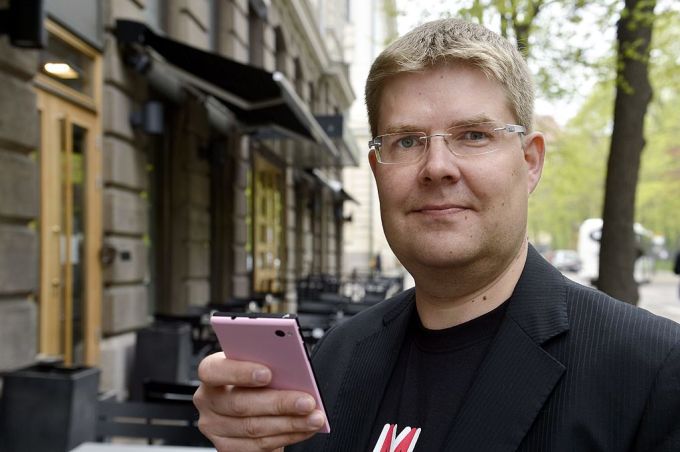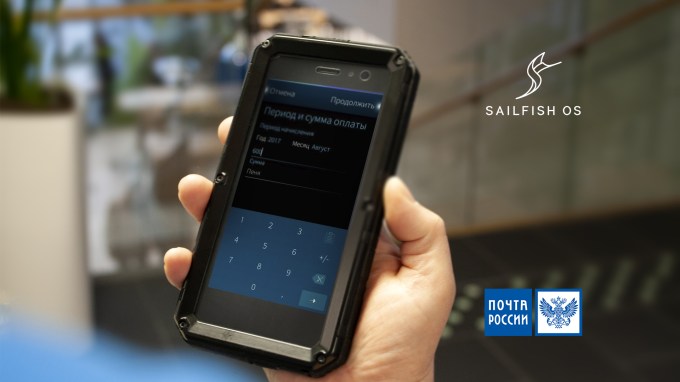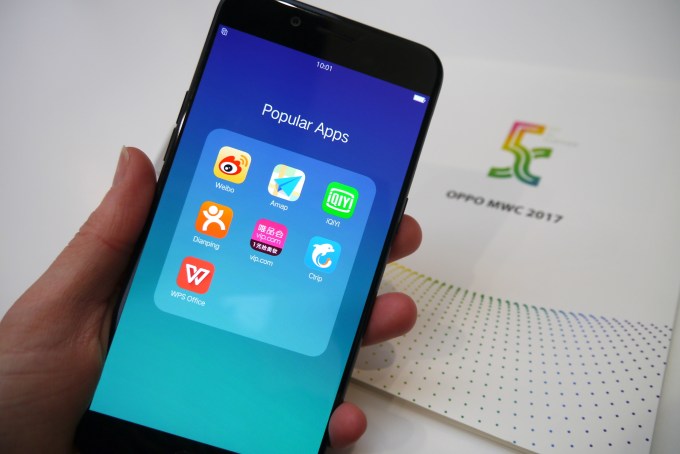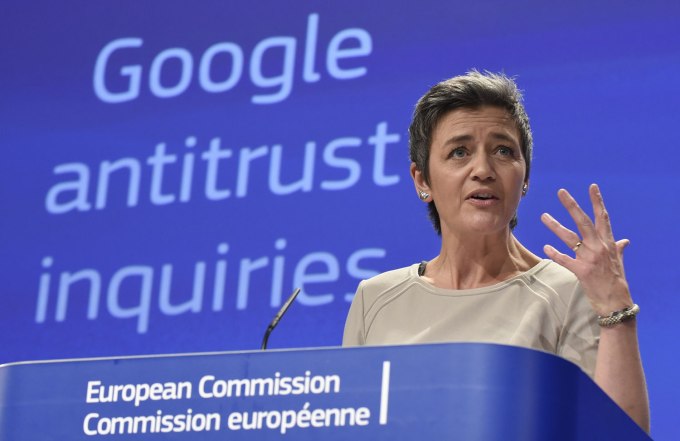With the smartphone operating system market sewn up by Google’s Android platform, which has a close to 90% share globally, leaving Apple’s iOS a slender (but lucrative) premium top-slice, a little company called Jolla and its Linux-based Sailfish OS is a rare sight indeed: A self-styled ‘independent alternative’ that’s still somehow in business.
The Finnish startup’s b2b licensing sales pitch is intended to appeal to corporates and governments that want to be able to control their own destiny where device software is concerned.
And in a world increasingly riven with geopolitical tensions that pitch is starting to look rather prescient.
Political uncertainties around trade, high tech espionage risks and data privacy are translating into “opportunities” for the independent platform player — and helping to put wind in Jolla’s sails long after the plucky Sailfish team quit their day jobs for startup life.
Building an alternative to Google Android
Jolla was founded back in 2011 by a band of Nokia staffers who left the company determined to carry on development of mobile Linux as the European tech giant abandoned its own experiments in favor of pivoting to Microsoft’s Windows Phone platform. (Fatally, as it would turn out.)
Nokia exited mobile entirely in 2013, selling the division to Microsoft. It only returned to the smartphone market in 2017, via a brand-licensing arrangement, offering made-in-China handsets running — you guessed it — Google’s Android OS.
If the lesson of the Jolla founders’ former employer is ‘resistance to Google is futile’ they weren’t about to swallow that. The Finns had other ideas.
Indeed, Jolla’s indie vision for Sailfish OS is to support a whole shoal of differently branded, regionally flavored and independently minded (non-Google-led) ecosystems all swimming around in parallel. Though getting there means not just surviving but thriving — and doing so in spite of the market being so thoroughly dominated by the U.S. tech giant.
TechCrunch spoke to Jolla ahead of this year’s Mobile World Congress tradeshow where co-founder and CEO, Sami Pienimäki, was taking meetings on the sidelines. He told us his hope is for Jolla to have a partner booth of its own next year — touting, in truly modest Finnish fashion, an MWC calendar “maybe fuller than ever” with meetings with “all sorts of entities and governmental representatives”.

Jolla co-founder, Sami Pienimaki, showing off a Jolla-branded handset in May 2013, back when the company was trying to attack the consumer smartphone space.
(Photo credit: KIMMO MANTYLA/AFP/Getty Images)
Even a modestly upbeat tone signals major progress here because an alternative smartphone platform licensing business is — to put it equally mildly — an incredibly difficult tech business furrow to plough.
Jolla almost died at the end of 2015 when the company hit a funding crisis. But the plucky Finns kept paddling, jettisoning their early pursuit of consumer hardware (Pienimäki describes attempting to openly compete with Google in the consumer smartphone space as essentially “suicidal” at this point) to narrow their focus to a b2b licensing play.
The early b2b salespitch targeted BRIC markets, with Jolla hitting the road to seek buy in for a platform it said could be moulded to corporate or government needs while still retaining the option of Android app compatibility.
Then in late 2016 signs of a breakthrough: Sailfish gained certification in Russia for government and corporate use.
Its licensing partner in the Russian market was soon touting the ability to go “absolutely Google-free!“.
Buy in from Russia
Since then the platform has gained the backing of Russian telco Rostelecom, which acquired Jolla’s local licensing customer last year (as well as becoming a strategic investor in Jolla itself in March 2018 — “to ensure there is a mutual interest to drive the global Sailfish OS agenda”, as Pienimäki puts it).
Rostelecom is using the brand name ‘Aurora OS‘ for Sailfish in the market which Pienimäki says is “exactly our strategy” — likening it to how Google’s Android has been skinned with different user experiences by major OEMs such as Samsung and Huawei.
“What we offer for our customers is a fully independent, regional licence and a tool chain so that they can develop exactly this kind of solution,” he tells TechCrunch. “We have come to a maturity point together with Rostelecom in the Russia market, and it was natural move plan together, that they will take a local identity and proudly carry forward the Sailfish OS ecosystem development in Russia under their local identity.”
“It’s fully compatible with Sailfish operating system, it’s based on Sailfish OS and it’s our joint interest, of course, to make it fly,” he adds. “So that as we, hopefully, are able to extend this and come out to public with other similar set-ups in different countries those of course — eventually, if they come to such a fruition and maturity — will then likely as well have their own identities but still remain compatible with the global Sailfish OS.”
Jolla says the Russian government plans to switch all circa 8M state officials to the platform by the end of 2021 — under a project expected to cost RUB 160.2 billion (~$2.4BN). (A cut of which will go to Jolla in licensing fees.)
It also says Sailfish-powered smartphones will be “recommended to municipal administrations of various levels,” with the Russian state planning to allocate a further RUB 71.3 billion (~$1.1BN) from the federal budget for that. So there’s scope for deepening the state’s Sailfish uptake.
Russian Post is one early customer for Jolla’s locally licensed Sailfish flavor. Having piloted devices last year, Pienimäki says it’s now moving to a full commercial deployment across the whole organization — which has around 300,000 employees (to give a sense of how many Sailfish powered devices could end up in the hands of state postal workers in Russia).

A rugged Sailfish-powered device piloted by Russian post
Jolla is not yet breaking out end users for Sailfish OS per market but Pienimäki says that overall the company is now “clearly above” 100k (and below 500k) devices globally.
That’s still of course a fantastically tiny number if you compare it to the consumer devices market — top ranked Android smartphone maker Samsung sold around 70M handsets in last year’s holiday quarter, for instance — but Jolla is in the b2b OS licensing business, not the handset making business. So it doesn’t need hundreds of millions of Sailfish devices to ship annually to turn a profit.
Scaling a royalty licensing business to hundreds of thousands of users is sums to “good business”, , says Pienimäki, describing Jolla’s business model for Sailfish as “practically a royalty per device”.
“The success we have had in the Russian market has populated us a lot of interesting new opening elsewhere around the world,” he continues. “This experience and all the technology we have built together with Open Mobile Platform [Jolla’s Sailfish licensing partner in Russia which was acquired by Rostelecom] to enable that case — that enables a number of other cases. The deployment plan that Rostelecom has for this is very big. And this is now really happening and we are happy about it.”
Jolla’s “Russia operation” is now beginning “a mass deployment phase”, he adds, predicting it will “quickly ramp up the volume to very sizeable”. So Sailfish is poised to scale.
Step 3… profit?
While Jolla is still yet to turn a full-year profit Pienimäki says several standalone months of 2018 were profitable, and he’s no longer worried whether the business is sustainable — asserting: “We don’t have any more financial obstacles or threats anymore.”
It’s quite the turnaround of fortunes, given Jolla’s near-death experience a few years ago when it almost ran out of money, after failing to close a $10.6M Series C round, and had to let go of half its staff.
It did manage to claw in a little funding at the end of 2015 to keep going, albeit as much leaner fish. But bagging Russia as an early adopter of its ‘independent’ mobile Linux ecosystem looks to have been the key tipping point for Jolla to be able to deliver on the hard-graft ecosystem-building work it’s been doing all along the way. And Pienimäki now expresses easy confidence that profitability will flow “fairly quickly” from here on in.
“It’s not an easy road. It takes time,” he says of the ecosystem-building company Jolla hard-pivoted to at its point of acute financial distress. “The development of this kind of business — it requires patience and negotiation times, and setting up the ecosystem and ecosystem partners. It really requires patience and takes a lot of time. And now we have come to this point where actually there starts to be an ecosystem which will then extend and start to carry its own identity as well.”
In further signs of Jolla’s growing confidence he says it hired more than ten people last year and moved to new and slightly more spacious offices — a reflection of the business expanding.
“It’s looking very good and nice for us,” Pienimäki continues. “Let’s say we are not taking too much pressure, with our investors and board, that what is the day that we are profitable. It’s not so important anymore… It’s clear that that is soon coming — that very day. But at the same time the most important is that the business case behind is proven and it is under aggressive deployment by our customers.”
The main focus for the moment is on supporting deployments to ramp up in Russia, he says, emphasizing: “That’s where we have to focus.” (Literally he says “not screwing up” — and with so much at stake you can see why nailing the Russia case is Jolla’s top priority.)
While the Russian state has been the entity most keen to embrace an alternative (non-U.S.-led) mobile OS — perhaps unsurprisingly — it’s not the only place in the world where Jolla has irons in the fire.
Another licensing partner, Bolivian IT services company Jalasoft, has co-developed a Sailfish-powered smartphone called Accione.

Jalasoft’s ‘liberty’-touting Accione Sailfish smartphone
It slates the handset on its website as being “designed for Latinos by Latinos”. “The digitalization of the economy is inevitable and, if we do not control the foundation of this digitalization, we have no future,” it adds.
Jalasoft founder and CEO Jorge Lopez says the company’s decision to invest effort in kicking the tyres of Jolla’s alternative mobile ecosystem is about gaining control — or seeking “technological libration” as the website blurb puts it.
“With Sailfish OS we have control of the implementation, while with Android it is the opposite,” Lopez tells TechCrunch. “We are working on developing smart buildings and we need a private OS that is not Android or iOS. This is mainly because our product will allow the end user to control the whole building and doing this with Android or iOS a hackable OS will bring concerns on security.”
Lopez says Jalasoft is using Accione as its development platform — “to gather customer feedback and to further develop our solution” — so the project clearly remains in an early phase, and he says that no more devices are likely to be announced this year.
But Jolla can point to more seeds being sewn with the potential, with work, determination and patience, to sprout into another sizeable crop of Sailfish-powered devices down the line.
Complexity in China
Even more ambitiously Jolla is also targeting China, where investment has been taken in to form a local consortium to develop a Chinese Sailfish ecosystem.
Although Pienimäki cautions there’s still much work to be done to bring Sailfish to market in China.
“We completed a major pilot with our licensing customer, Sailfish China Consortium, in 2017-18,” he says, giving an update on progress to date. “The public in market solution is not there yet. That is something that we are working together with the customer — hopefully we can see it later this year on the market. But these things take time. And let’s say that we’ve been somewhat surprised at how complex this kind of decision-making can be.”
“It wasn’t easy in Russia — it took three years of tight collaboration together with our Russian partners to find a way. But somehow it feels that it’s going to take even more in China. And I’m not necessarily talking about calendar time — but complexity,” he adds.
While there’s no guarantee of success for Jolla in China, the potential win is so big given the size of the market that even if they can only carve out a tiny slice, such as a business or corporate sector, it’s still worth going after. And he points to the existence of a couple of native mobile Linux operating systems he reckons could make “very lucrative partners”.
That said, the get-to-market challenge for Jolla in China is clearly distinctly different vs the rest of the world. This is because Android has developed into an independent (i.e. rather than Google-led) ecosystem in China as a result of state restrictions on the Internet and Internet companies. So the question is what could Sailfish offer that forked Android doesn’t already?

An Oppo Android powered smartphone on show at MWC 2017
Again, Jolla is taking the long view that ultimately there will be appetite — and perhaps also state-led push — for a technology platform bolster against political uncertainty in U.S.-China relations.
“What has happened now, in particular last year, is — because of the open trade war between the nations — many of the technology vendors, and also I would say the Chinese government, has started to gradually tighten their perspective on the fact that ‘hey simply it cannot be a long term strategy to just keep forking Android’. Because in the end of the day it’s somebody else’s asset. So this is something that truly creates us the opportunity,” he suggests.
“Openly competing with the fact that there are very successful Android forks in China, that’s going to be extremely difficult. But — let’s say — tapping into the fact that there are powers in that nation that wish that there would be something else than forking Android, combined with the fact that there is already something homegrown in China which is not forking Android — I think that’s the recipe that can be successful.”
Not all Jolla’s Sailfish bets have paid off, of course. An earlier foray by an Indian licensing partner into the consumer handset market petered out. Albeit, it does reinforce their decision to zero in on government and corporate licensing.
“We got excellent business connections,” says Pienimäki of India, suggesting also that it’s still a ‘watch this space’ for Jolla. The company has a “second move” in train in the market that he’s hopeful to be talking about publicly later this year.
It’s also pitching Sailfish in Africa. And in markets where target customers might not have their own extensive in-house IT capability to plug into Sailfish co-development work Pienimäki says it’s offering a full solution — “a ready made package”, together with partners, including device management, VPN, secure messaging and secure email — which he argues “can be still very lucrative business cases”.
Looking ahead and beyond mobile, Pienimäki suggests the automotive industry could be an interesting target for Sailfish in the future — though not literally plugging the platform into cars; but rather licensing its technologies where appropriate — arguing car makers are also keen to control the tech that’s going into their cars.
“They really want to make sure that they own the cockpit. It’s their property, it’s their brand and they want to own it — and for a reason,” he suggests, pointing to the clutch of major investments from car companies in startups and technologies in recent years.
“This is definitely an interesting area. We are not directly there ourself — and we are not capable to extend ourself there but we are discussing with partners who are in that very business whether they could utilize our technologies there. That would then be more or less like a technology licensing arrangement.”
A trust balancing model
While Jolla looks to be approaching a tipping point as a business, in terms of being able to profit off of licensing an alternative mobile platform, it remains a tiny and some might say inconsequential player on the global mobile stage.
Yet its focus on building and maintaining trusted management and technology architectures also looks timely — again, given how geopolitical spats are intervening to disrupt technology business as usual.
Chinese giant Huawei used an MWC keynote speech last month to reject U.S.-led allegations that its 5G networking technology could be repurposed as a spying tool by the Chinese state. And just this week it opened a cybersecurity transparency center in Brussels, to try to bolster trust in its kit and services — urging industry players to work together on agreeing standards and structures that everyone can trust.
In recent years U.S.-led suspicions attached to Russia have also caused major headaches for security veteran Kaspersky — leading the company to announce its own trust and transparency program and decentralize some of its infrastructure, including by spinning up servers in Europe last year.
Businesses finding ways to maintain and deepen the digital economy in spite of a little — or even a lot — of cross-border mistrust may well prove to be the biggest technology challenge of all moving forward.
Especially as next-gen 5G networks get rolled out — and their touted ‘intelligent connectivity’ reaches out to transform many more types of industries, bringing new risks and regulatory complexity.
The geopolitical problem linked to all this boils down to how to trust increasing complex technologies without any one entity being able to own and control all the pieces. And Jolla’s business looks interesting in light of that because it’s selling the promise of neutral independence to all its customers, wherever they hail from — be it Russia, LatAm, China, Africa or elsewhere — which makes its ability to secure customer trust not just important but vital to its success.
Indeed, you could argue its customers are likely to rank above average on the ‘paranoid’ scale, given their dedicated search for an alternative (non-U.S.-led) mobile OS in the first place.
“It’s one of the number one questions we get,” admits Pienimäki, discussing Jolla’s trust balancing act — aka how it manages and maintains confidence in Sailfish’s independence, even as it takes business backing and code contributions from a state like Russia.
“We tell about our reference case in Russia and people quickly ask ‘hey okay, how can I trust that there is no blackbox inside’,” he continues, adding: “This is exactly the core question and this is exactly the problem we have been able to build a solution for.”
Jolla’s solution sums to one line: “We create a transparent platform and on top of fully transparent platform you can create secure solutions,” as Pienimäki puts it.
“The way it goes is that Jolla with Sailfish OS is always offering the transparent Sailfish operating system core, on source code level, all the time live, available for all the customers. So all the customers constantly, in real-time, have access to our source code. Most of it’s in public open source, and the proprietary parts are also constantly available from our internal infrastructure. For all the customers, at the same time in real-time,” he says, fleshing out how it keeps customers on board with a continually co-developing software platform.
“The contributions we take from these customers are always on source code level only. We don’t take any binary blobs inside our software. We take only source code level contributions which we ourselves authorize, integrate and then we make available for all the customers at the very same moment. So that loopback in a way creates us the transparency.
“So if you want to be suspicion of the contributions of the other guys, so to say, you can always read it on the source code. It’s real-time. Always available for all the customers at the same time. That’s the model we have created.”
“It’s honestly quite a unique model,” he adds. “Nobody is really offering such a co-development model in the operating system business.
“Practically how Android works is that Google, who’s leading the Android development, makes the next release of Android software, then releases it under Android Open Source and then people start to backboard it — so that’s like ‘source, open’ in a way, not ‘open source’.”
Sailfish’s community of users also have real-time access to and visibility of all the contributions — which he dubs “real democracy”.
“People can actually follow it from the code-line all the time,” he argues. “This is really the core of our existence and how we can offer it to Russia and other countries without creating like suspicion elements each side. And that is very important.
“That is the only way we can continue and extend this regional licensing and we can offer it independently from Finland and from our own company.”
With global trade and technology both looking increasingly vulnerable to cross-border mistrust, Jolla’s approach to collaborative transparency may offer something of a model if other businesses and industries find they need to adapt themselves in order for trade and innovation to keep moving forward in uncertain political times.
Antitrust and privacy uplift
Last but not least there’s regulatory intervention to consider.
A European Commission antitrust decision against Google’s Android platform last year caused headlines around the world when the company was slapped with a $5BN fine.
More importantly for Android rivals Google was also ordered to change its practices — leading to amended licensing terms for the platform in Europe last fall. And Pienimäki says Jolla was a “key contributor” to the Commission case against Android.

European competition commissioner Margrethe Vestager, on April 15, 2015 in Brussels, as the Commission said it would open an antitrust investigation into Google’s Android operating system. (Photo credit: JOHN THYS/AFP/Getty Images)
The new Android licensing terms make it (at least theoretically) possible for new types of less-heavily-Google-flavored Android devices to be developed for Europe. Though there have been complaints the licensing tweaks don’t go far enough to reset Google’s competitive Android advantage.
Asked whether Jolla has seen any positive impacts on its business following the Commission’s antitrust decision, Pienimäki responds positively, recounting how — “one or two weeks after the ruling” — Jolla received an inbound enquiry from a company in France that had felt hamstrung by Google requiring its services to be bundled with Android but was now hoping “to realize a project in a special sector”.
The company, which he isn’t disclosing at this stage, is interested in “using Sailfish and then having selected Android applications running in Sailfish but no connection with the Google services”.
“We’ve been there for five years helping the European Union authorities [to build the case] and explain how difficult it is to create competitive solutions in the smartphone market in general,” he continues. “Be it consumer or be it anything else. That’s definitely important for us and I don’t see this at all limited to the consumer sector. The very same thing has been a problem for corporate clients, for companies who provide specialized mobile device solutions for different kind of corporations and even governments.”
While he couches the Android ruling as a “very important” moment for Jolla’s business last year, he also says he hopes the Commission will intervene further to level the smartphone playing field.
“What I’m after here, and what I would really love to see, is that within the European Union we utilize Linux-based, open platform solution which is made in Europe,” he says. “That’s why we’ve been pushing this [antitrust action]. This is part of that. But in bigger scheme this is very good.”
He is also very happy with Europe’s General Data Protection Regulation (GDPR) — which came into force last May, plugging in a long overdue update to the bloc’s privacy rules with a much beefed up enforcement regime.
GDPR has been good for Jolla’s business, according to Pienimäki, who says interest is flowing its way from customers who now perceive a risk to using Android if customer data flows outside Europe where they cannot guarantee adequate privacy protections are in place.
“Already last spring… we have had plenty of different customer discussions with European companies who are really afraid that ‘hey I cannot offer this solution to my government or to my corporate customer in my country because I cannot guarantee if I use Android that this data doesn’t go outside the European Union’,” he says.
“You can’t indemnify in a way that. And that’s been really good for us as well.”
from Startups – TechCrunch https://ift.tt/2CdvXPh
via IFTTT
No comments:
Post a Comment
Thank You for your Participation